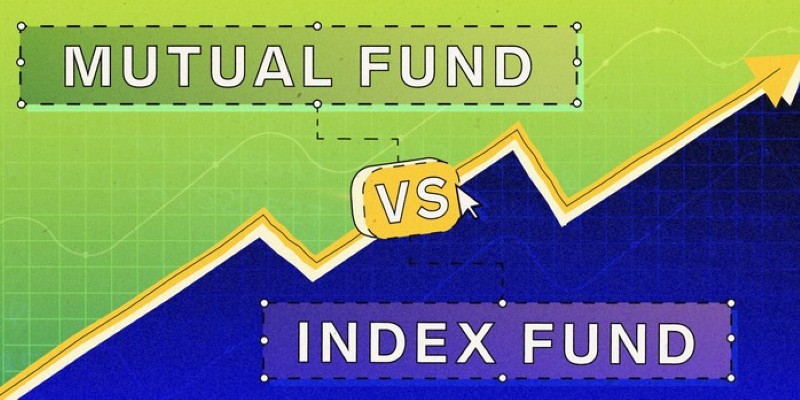Are Index Funds Better Than Mutual Funds?
In the world of investing, index funds and mutual funds are two of the most popular ways for individuals to grow their wealth. Both types of funds offer investors the ability to pool their money with others to invest in a diversified portfolio. We will compare index funds and mutual funds by examining their structure, cost, performance, and other factors to help you decide which might be the right choice for your investment strategy.
Understanding Index Funds
An index fund is a type of mutual fund designed to replicate the performance of a specific market index, such as the S&P 500 or the NASDAQ-100. The fund invests in the same securities that make up the index it tracks in the same proportions. The goal of an index fund is not to beat the market but to mirror its performance as closely as possible.
Index funds are often passively managed, which means that fund managers do not make active decisions about which stocks to buy or sell. Instead, they automatically follow the index's composition, which is determined by a set of rules. For example, if an index tracks the top 500 companies in the U.S., the index fund will invest in those same 500 companies without making individual choices.
Understanding Mutual Funds
A mutual fund is a pool of money from many investors which is used to invest in a diverse range of assets, including stocks, bonds, and other securities. Mutual funds can be actively or passively managed. In actively managed mutual funds, a fund manager or team actively selects securities to buy or sell, aiming to outperform the market. On the other hand, passively managed mutual funds track a specific index, similar to index funds, but the term "mutual fund" typically refers to actively managed funds.

The main idea behind mutual funds is diversification. Pooling money with other investors provides access to a diverse range of assets, helping to spread and reduce risk. Mutual funds can be an excellent way for investors to access markets they may not be able to invest in directly, such as international stocks or specialized sectors.
Cost Differences: Index Funds Vs. Mutual Funds
One of the most significant differences between index funds and mutual funds is the cost. Index funds tend to have lower fees because they are passively managed. Since the fund only tracks an index, there is less need for research, analysis, and active decision-making, which translates into fewer management expenses. As a result, index funds generally have lower expense ratios, representing the annual fee as a percentage of the fund's average assets.

In contrast, actively managed mutual funds often have higher fees. These funds require fund managers to actively monitor the market, perform research, and make decisions on behalf of investors. The higher cost of active management can lead to higher expense ratios, which can erode the returns over time. Even though some actively managed funds may outperform the market, the higher costs associated with these funds can make it more challenging to achieve a higher net return compared to a lower-cost index fund.
Performance And Returns
The primary difference in performance between index funds and mutual funds is their management style. Index funds are designed to mirror the performance of a specific market index, which means they generally provide average market returns. If the market goes up, index funds will likely go up, and if the market declines, so will the index funds.

Mutual funds, particularly actively managed ones, aim to beat the market. Active fund managers will attempt to select stocks and securities that they believe will outperform the market. However, it's important to note that actively managed mutual funds do not always outperform the market. In fact, many studies have shown that over time, most actively managed mutual funds fail to beat their benchmark index after accounting for fees. This means that, on average, index funds may deliver superior returns due to their lower costs.
Tax Considerations
Tax efficiency is another important factor when comparing index funds and mutual funds. Index funds tend to be more tax-efficient due to their passive management style. Because index funds rarely buy and sell securities, they generate fewer taxable capital gains. In contrast, actively managed mutual funds frequently trade stocks, potentially triggering capital gains taxes. Even though mutual fund managers can try to minimize taxable events, the higher turnover rates associated with actively managed funds generally result in a higher tax burden for investors.

Index funds generally hold securities for longer durations, increasing the likelihood that their gains qualify as long-term capital gains, which are taxed at lower rates than short-term gains. This makes index funds an attractive option for investors seeking to minimize their tax liability over time.
Which One Is Right For You?
Choosing between index funds and mutual funds depends on your financial goals, risk tolerance, and investment strategy. If you prefer a low-cost, passive investment approach that closely tracks the overall market, index funds may be the better choice. They are a simple, effective way to build wealth over time and are particularly well-suited for long-term investors who are not interested in actively managing their investments.

On the other hand, if you are willing to take on more risk in the hopes of earning higher returns, and if you don’t mind paying higher fees for professional management, then mutual funds might be the way to go. Actively managed mutual funds can provide the opportunity for greater returns, especially if the fund manager is skilled at picking winning investments. However, it is important to remember that many actively managed funds do not consistently outperform their benchmark indices after fees are taken into account.
Conclusion
Both index funds and mutual funds offer valuable benefits for investors, but they cater to different investment strategies. Index funds provide a cost-effective, passive approach to market exposure, offering broad diversification and predictable, market-matching returns.
Mutual funds, particularly those that are actively managed, offer the potential for higher returns but come with higher costs and more management risk. Whether you opt for index funds or mutual funds, both can be valuable tools for creating a diversified investment portfolio to help you reach your financial goals.